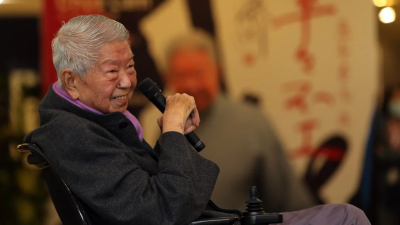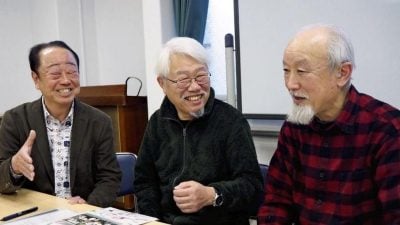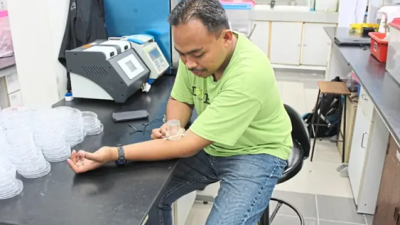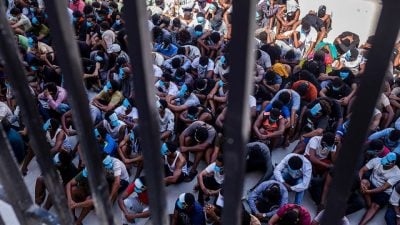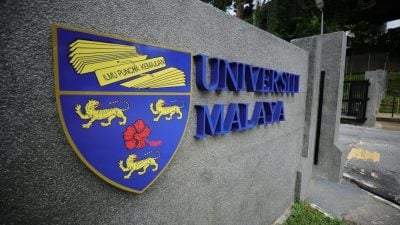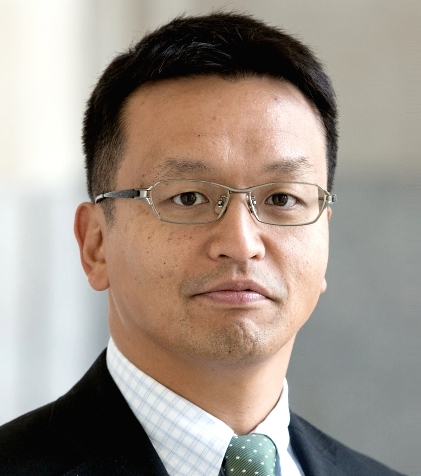
By Atsuhito Isozaki
The politburo meeting of the Central Committee of the Workers' Party of Korea was held on April 11. Not only did none of the attendees, including Chairman Kim Jong-un, wear a mask, but it also did not seem that the attendees were practicing social distancing.
However, compared to the plenary meeting of the Central Committee or the enlarged meeting of the Political Bureau, which are usually held around this time of the year, the size of the meeting was small. Moreover, the first point on the agenda was "On more thoroughly taking national measures for protecting the life and safety of our people from the worldwide epidemic disease," so it is unmistakably clear that they take the novel coronavirus issue seriously. The party newspaper, Rodong Sinmun (Workers' Newspaper), has gone as far as saying that it is "a matter of life or death for the state."
On the following day, April 12, the 3rd session of the 14th Supreme People's Assembly (SPA, the DPRK's parliament) was held. Almost all 687 delegates were in attendance and again, none of them wore a mask. This could be seen as a way to further communicate both domestically and internationally that the number of infected remains at "zero," but it also suggests that they are confident in their ability to control the virus. If the virus were to spread in North Korea, with its weak medical system, it would be too dangerous to hold a meeting with representatives from all over the country. The stay-at-home order for diplomats in Pyongyang was also lifted this month.
North Korea was showing signs of "national isolation" already in late January. At the time, there was a tendency to sneer at how typical it was of the country to adopt extreme measures so swiftly, but "national isolation" had become a worldwide trend by March. Although it is highly unlikely that nobody has been infected, it would seem that the strict system of social control has its benefits in emergencies such as the one going on now.
Neither of the two meetings touched on diplomacy in any way. Based on the perception that U.S.–North Korean relations will remain in a stalemate and that economic sanctions will not be relaxed in the near future, the North Korean leadership simply reaffirmed their intention not to rely on investments from and trade with other countries as well as achieve "wealth and power by our own strength, prosperity by our own strength" and become an "independent economic powerhouse." Moreover, they emphasized increased investment in the area of science and technology, such as by adopting the Distance Education Law as a prescription against the protracted school closures.
The construction of Pyongyang General Hospital was given as the primary example of important projects to be completed this year. This was markedly different from last year's emphasis on building sightseeing districts, such as hot springs. Chairman Kim Jong-un personally attended the groundbreaking ceremony in March, giving a speech about building a modern hospital in one of Pyongyang's premier districts. Another aspect is likely that healthcare is a field for which it is easy to receive assistance from South Korea and other nearby countries.
The leadership sang their own praises about the increased production of coal and steel as examples of accomplishments in the previous year, also announcing that they "exceeded the level of cereal production in the previous record harvest year despite disadvantageous weather conditions."
In the first half of the year, the North Korean media was alarmed by drought damage caused by the lowest precipitation in 37 years. If the leaders of the regime are not simply embellishing the facts, but genuinely believe they have had a bumper harvest, then we have to conclude that there are problems with how information is conveyed. Chairman Kim Jong-un has given strict instructions to not just report quotas reached but also to communicate "deficiencies" in economic activities, yet this suggests the possibility that his subordinates are giving innocuous reports to protect themselves. The question of whether accurate information and messages are conveyed to the supreme leader is a cause for apprehension from a diplomatic perspective as well.
(Atsuhito Isozaki is Associate Professor at Keio University, Japan.)
ADVERTISEMENT
ADVERTISEMENT







